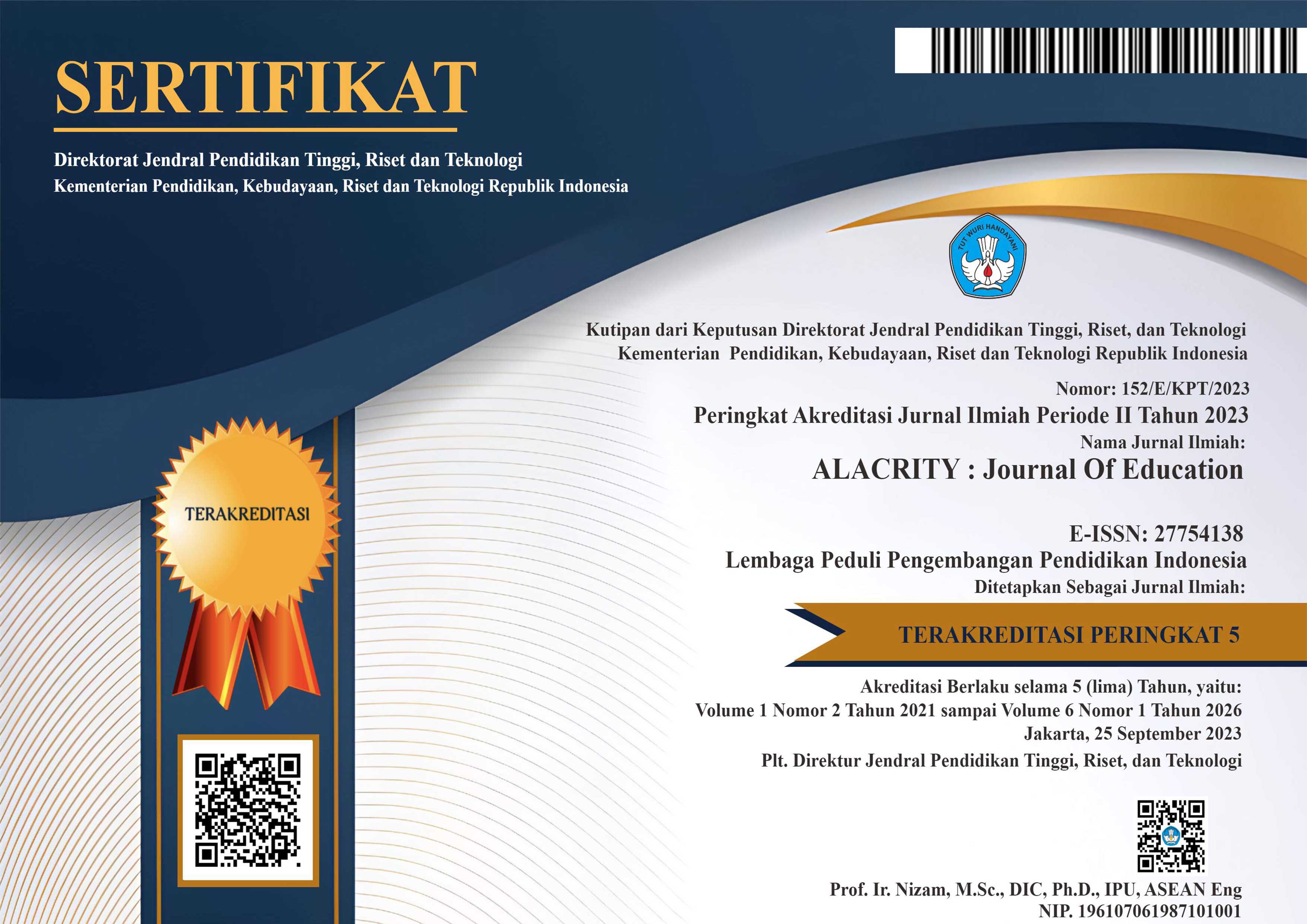Analysis of Learning Styles of Students in Class VI A SD Bukit Aksara in Learning IPAS
DOI:
https://doi.org/10.52121/alacrity.v4i3.417Keywords:
Learning Styles, Auditorial, Visual, Kinesthetic, StudentsAbstract
Learning styles in students are considered very important for the learning process and learning outcomes, besides that teachers also have an important role in implementing the learning process in students who have been adapted to the learning styles of students. This study aims to: (1) Describe the learning styles of class VIA students in IPAS subjects (2) Describe the efforts made by teachers in the learning styles of students in IPAS lessons. This type of research is descriptive qualitative research, where in collecting data using three techniques, namely observation, interviews, and documentation. During the interview, the researcher used a structured interview, where several indicators of questions about learning styles were provided based on the learning style questionnaire. Data validity used, namely source triangulation and technique triangulation. This data analysis uses the Miles & Huberman model including data collection, data reductions, data display, conclusions. In this study there were 20 students who were interviewed and observed, and the results obtained from these 20 students, 10 of them had a visual learning style style covering 50% of the number of students in class VIA, 6 of them had an auditory learning style covering 30% of the number of students in class VIA, and 4 students had a kinesthetic learning style covering 20% of the number of students in class VIA. It can be seen that the visual learning style dominates with the most students compared to students in other learning styles. Based on these results, it states that the way of learning that each student or each individual has will certainly be very different.
Downloads
Published
Issue
Section
License
Copyright (c) 2024 ALACRITY : Journal of Education

This work is licensed under a Creative Commons Attribution-ShareAlike 4.0 International License.













